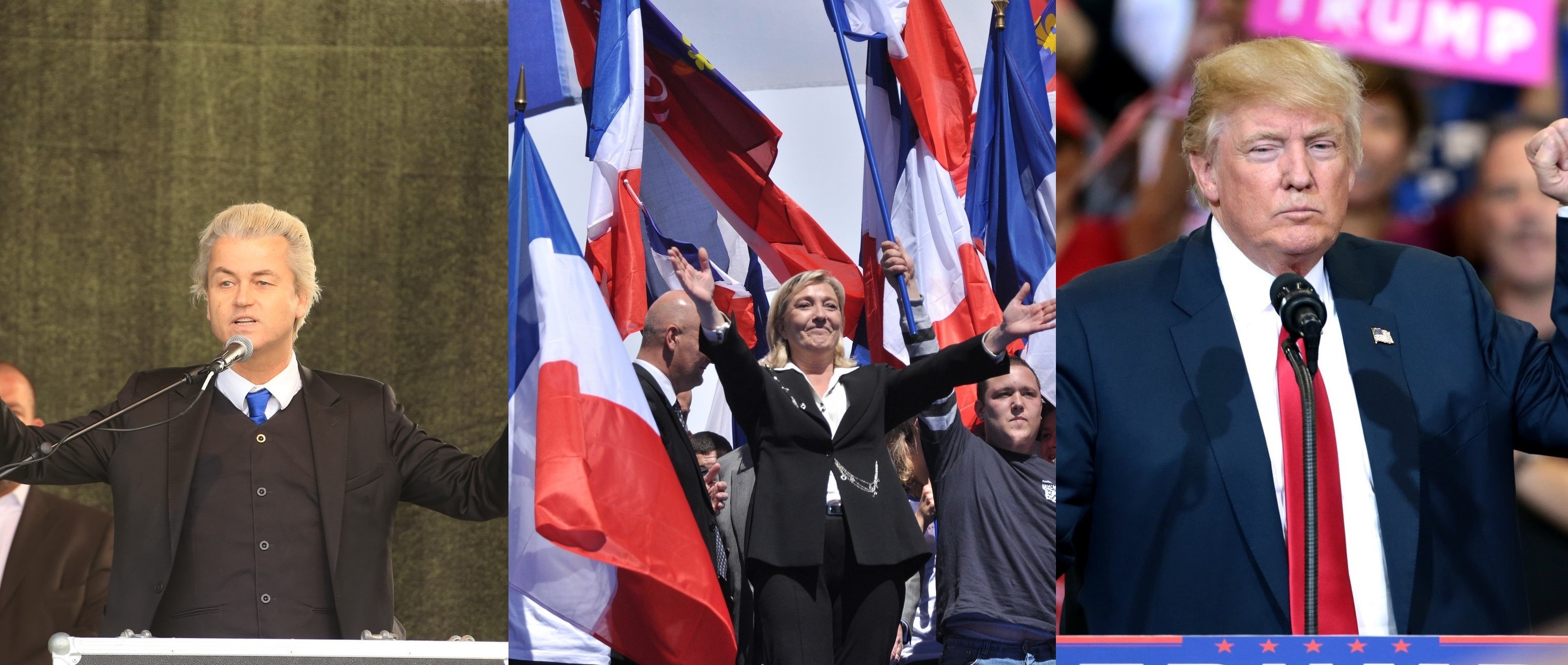Madrid, 10 March 2017 – It’s not often that your own colleagues working on democracy issues actually question the wisdom of pressing for greater transparency, but this has happened to me a few times lately. Most recently, I’ve been asked about the wisdom of pursuing Access Info’s high profile campaign to get the European Commission to publish the travel expenses of EU Commissioners. The fear seems to be that this very peculiar time in European history – with sensitive elections in France and the Netherlands, with Brexit negotiations likely to be tense, with democracy struggling in Hungary and Poland, and of course with the terrifying spectre of tweeting President Trump on the other side of the Atlantic – is a delicate context, and that any scandals about the EU’s senior politicians might further undermine faith in the democratic system and push people into the arms of anti-democratic populists. The paradox is that Access Info’s Commissioners’ travel expenses campaign has only come about because of the extreme reluctance of the European Commission over the past couple of years to provide the data. The first argument it used was, stunningly, the privacy of the Commissioners. In a victory for common sense over bureaucratic obstinacy, I and my colleagues successfully appealed and in December 2016 we obtained a small amount of expenses data. To get the rest of the data we mobilised European citizens, and in January a total of 120 interested people from across Europe requested different bits of the Commissioners’ 2016 travel expenses. In an unexpected response, the Commission is simply digging in its heels and saying that it’s too much work – that it would take 75.5 days to process these requests, including a full four days just to find the information, which remarkably doesn’t seem to be centrally filed or digitised in a database. It’s clear that something more is at play: The Commission has refused to register these requests – in direct violation of EU law – and has stated in an email to me that it will not process any more requests relating to President Juncker, Vice President Timmermans and Commissioners Cañete, Oettinger and Stylianides, beyond the two months’ worth of 2015 expenses that we received in December 2016. Such reticence has one inevitable effect, which is to fuel suspicions, so that any reasonable person asks “What are they hiding?” It’s true that Access Info found that President Juncker and some colleagues took an air taxi back to Brussels from the G20 Summit in Turkey in November 2015 at the cost of €63,126. An expensive journey on taxpayers’ money for sure, but our publication of this information didn’t cause major outrage. So it seems that it’s an anxiety about bad press rather than bad press itself that is driving this secrecy. It may also be that this fear of scandals, the fear of fuelling the public perception of the European political elite as a corrupt clique not interested in ordinary people, also lies behind the European Commission’s decision not to release the EU Anti-Corruption Report, originally scheduled for publication in late 2016 but now permanently shelved, according to a letter sent by Vice-President Frans Timmermans to the European Parliament in early 2017. The EU Anti-Corruption Report would have provided an assessment of anti-corruption efforts in each EU Member State, along with recommendations for each country. Many anti-corruption experts and civil society organisations had worked on the country chapters. No doubt there would have been uncomfortable truths revealed, media headlines, maybe even in some countries renewed calls for radical reforms. But the reality is that, even without these reports, people know what is going on and are frustrated about it, as amply demonstrated by the massive street protests in Romania in early 2017 against reforms to the penal code that would have permitted pardoning of crimes linked to abuse of power. Keeping things secret doesn’t change much in the end. Even worse, the perverse effect of an information vacuum is that it gives rise to speculation, conspiracy theories, and fake news. And it becomes a vicious circle, so now there is even secrecy about the fight against fake news: In an irony worthy of the best TV series scriptwriters, in the very week that we learned from The New York Times that the EU has set up a specific department to counter fake news – it’s called East StratCom, employs 11 people including journalists and former diplomats and has so far “it has discredited 2,500 stories, many with links to Russia” – the European Commission denied a colleague from Germany with any of the strategy documents on its plans to combat fake news! Secrecy is also wrongheaded because the reality of the information age is that documents revealing wrongdoing will, eventually, find their way into the public domain, and when that happens the political blowback can be massive, as we saw so clearly in 2016 with the Panama Papers, which resulted in multiple resignations, and at least 150 criminal, civil, or regulatory investigations in 79 countries. Similarly, Lux Leaks shone the light on how Luxembourg’s tax regime was helping big companies avoid paying taxes into the public purse of European countries, money desperately needed to keep social, health, and education services running in these post-crisis times. [7]
Lux Leaks no doubt increased public disenchantment with the way politics and business is being done across Europe, but it would be a huge mistake to blame transparency rather than the underlying systemic problems that it reveals. Furthermore, it’s misguided to pursue aggressive criminal prosecutions of whilstleblowers like Antoine Deltour of Lux Leaks, currently on trial facing a 12-month prison sentence, when they have evidently acted in the wider public interest. Rather, such leaks reinforce the lesson that excessive secrecy hurts more than it helps. Secrecy even hurts processes inside government: Just look at the challenges of the law enforcement people over at Europol, who found that almost 3,500 individuals and companies in the Panama Papers are probable matches for suspected criminals including terrorists, cybercriminals, and smugglers. The only solution then in an open, democratic society is to take the information that has been revealed and to debate how to improve the system. That debate could be as simple as considering whether European taxpayers are comfortable with funding air taxis for the President of the Commission at €60,000 a throw. Maybe we are, maybe we are not. We can talk about it. It’s also essential to discuss how we handle tax evasion, money laundering, and the financing of terrorism. Right now there is an opportunity to address this issue, after the European Parliament voted in February 2017 in favour of EU countries having open registers of the ultimate or “beneficial” owners of companies so that Panama Papers-style scandals can be prevented in the future, something Access Info and many other CSOs have been calling for for a number of years. It’s important that Europe’s governments don’t water down this regulation in the next phase of the European legislative process, something Access Info will be campaigning on. And so this is my answer to doubters who are concerned that high profile transparency campaigns might have a negative impact: if we are ever to address the democratic deficit in Europe, if we are ever to root out corruption and achieve acceptable levels of integrity in political life, then we need much more rather than less transparency, and we need much stronger mechanisms to ensure that information enters the public domain – mechanisms that must include both strong access to information laws and solid whistleblower protection – so that we can have a proper debate about how to address the issues. That is why Access Info will continue to fight for access to the Commissioners’ travel expenses, taking the case to the European Ombudsman and/or European Court of Justice as necessary. That is also why Access Info along with the representatives of 13 other leading civil society organisations from across Europe submitted a joint request to the European Commission on 2 March 2014 asking for documents that explain the thinking behind the decision not to publish the EU Anti-Corruption Report, as well as asking for the draft country chapters. The challenge for all right to information and anti-corruption campaigners is to get the clear message across to Europe’s political leaders: you might have to reveal some information that makes life a bit uncomfortable, you might have to spend precious time explaining yourselves to the public, you will certainly come under serious pressure from private interest lobbyists, a resignation or two might be needed, and yes, there’s even a risk of some criminal charges against a few of your colleagues, but if you are really concerned about increasing public trust and fighting against the dangers posed by demagogic populism, if you are genuinely committed to strengthening democratic structures, then increasing transparency has to be an urgent priority. Luisa Izuzquiza, Communications Officer | Access Info Europe Send an e-mail or call +34 913 656 558
Helen Darbishire, Executive Director
For more information, please contact:
or
Helen Darbishire, Executive Director | Access Info Europe
The risks of transparency in times of rising populism
[Article first published by the UNCAC Coalition Blog]

